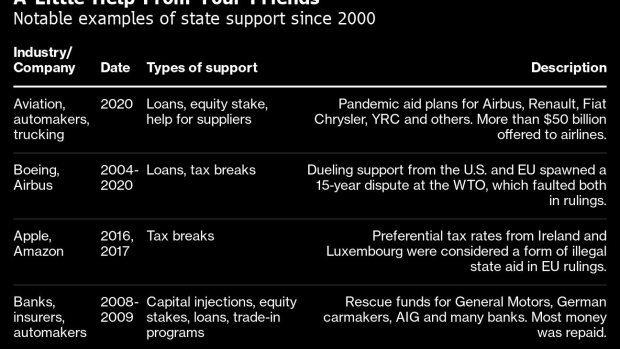May 28, 2021
G-7 Trade Chiefs Want Stronger Rules on Subsidies; See WTO Role
, Bloomberg News

(Bloomberg) -- Trade ministers from the world’s seven largest advanced economies want to bolster regulations on industrial subsidies and curb actions by state-owned companies that distort trade, and they see the World Trade Organization playing a pivotal role in addressing the problems.
“We call for the start of negotiations to develop stronger international rules on market-distorting industrial subsidies and trade-distorting actions by state enterprises,” the Group of Seven’s trade ministers said in a joint statement Friday. “We will continue our efforts to tackle unfair practices that force companies to transfer technology to the state or to competitors. We recognize the critical importance of engaging with other WTO members on these issues.”
The trade chiefs of the members of the G-7 -- Canada, France, Germany, Italy, Japan, the U.K. and the U.S. -- and the European Union said they want to pursue negotiations aimed at curbing state support of industries as part of a joint effort to limit China’s excessive subsidies for its private companies.
The talks, which are built on a Trump-era trilateral initiative with the EU and Japan, seek consensus on how to restrict the market-distorting behavior of state-owned enterprises and confront harmful subsidy practices, including low-interest loans by state-owned banks.
The goal is to pursue a negotiation among a small group of nations that might eventually be opened to the WTO’s broader membership. If the talks advance among a broad coalition of countries, they could become the most significant attempt to rewrite WTO rules since the ultimately unsuccessful Doha Round of trade negotiations was launched in 2001.
The European Union and the U.S. are also expected to endorse the drive when President Joe Biden and European Commission President Ursula von der Leyen meet in Brussels after the G-7 Summit in June, according to a draft statement seen by Bloomberg.
©2021 Bloomberg L.P.